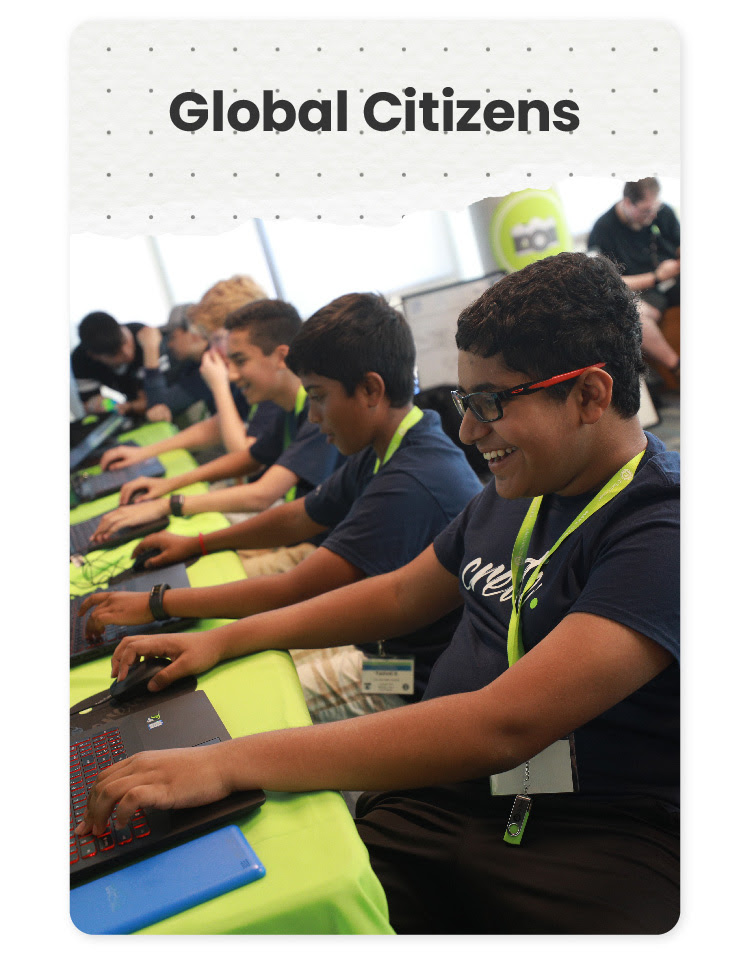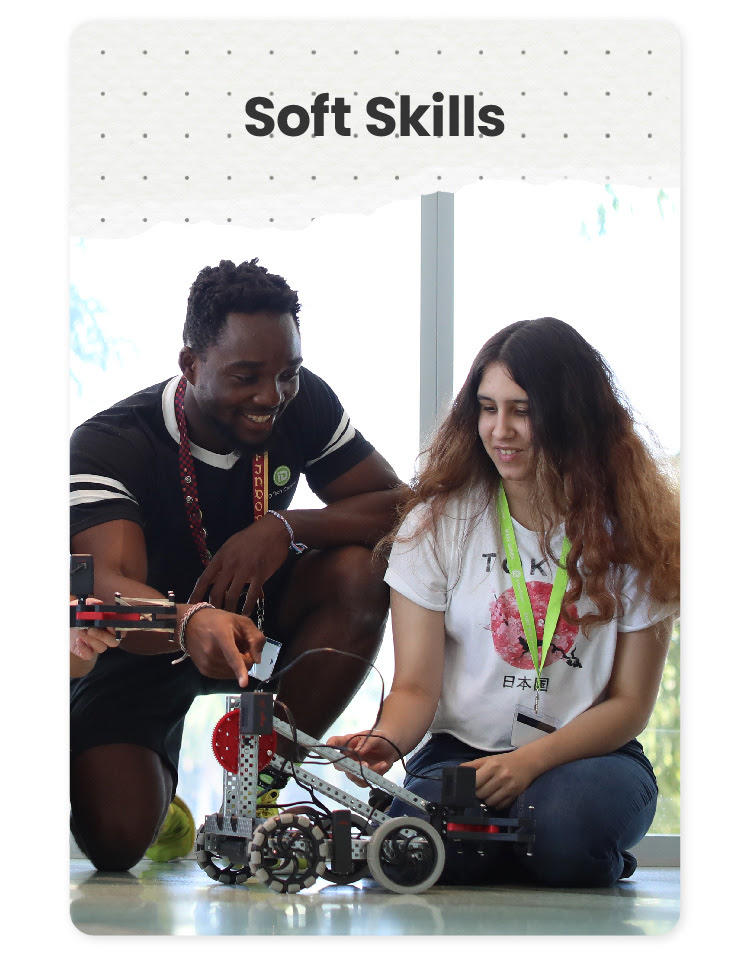Enrichment goes beyond schooling, offering personalized instruction based on a child's interests and skills. Enrichment classes offer opportunities to both catch up and challenge students, nurturing their passions, and fostering essential skills. These skills include STEM knowledge, creativity, adaptability, and soft skills like collaboration and communication.
Enrichment programs aim to meet children where they are, cultivate a global perspective, and empower students to acquire valuable skills not typically taught in schools.
Why Enrichment Matters
You’ve likely heard us say, “Educational enrichment matters” many a time across this blog. We repeat ourselves because we know enrichment helps kids of all interests and skill levels.
enrichment helps kids of all interests and skill levels.
As an example, if you have a child interested in technology—how do they feed that hunger for knowledge if they can't take related coding classes in school?
Participating in coding as an enrichment activity, though, can provide the child with opportunities to explore their interests. They can learn popular kid-friendly coding languages like Python, Java, or JavaScript, and develop logical thinking, problem-solving abilities, and computational skills.
Coding also nurtures their creativity as they design and create their own interactive programs, games, or websites, fostering a deeper understanding of technology and potentially laying the foundation for future STEM-related pursuits.
Enrichment Vs. School
Enrichment is not just "more school"—it’s a deep dive into who your child is. Each student has their own passions and learning style. For instance, at iD Tech, our enrichment is differentiated for every skill level, and our topics span every interest from coding to game dev to creative. No matter what your child’s dreams, we are here to nurture their passions so interests of today pave the path for skills of tomorrow.

With so many schools not teaching STEM topics like tech, coding, and engineering, kids are prone to falling behind in a rapidly evolving world. STEM-based education is not just math and science concepts—it’s hands-on learning with real-world applications that help develop creativity, adaptability, and other essential 21st-century skills.
This is a good place to point out that enrichment activities can mirror traditional school subjects, but the outcomes vary. For instance, by participating in math tutoring as an enrichment activity, a student can receive personalized instruction tailored to their specific areas of struggle.
 The tutor can employ interactive and engaging methods to make math more enjoyable and relatable, helping the child improve their understanding of mathematical concepts and build confidence in their abilities.
The tutor can employ interactive and engaging methods to make math more enjoyable and relatable, helping the child improve their understanding of mathematical concepts and build confidence in their abilities.
Math tutoring complements the regular school math class by providing individualized attention, targeted support, and a nurturing environment that facilitates a deeper understanding and appreciation for mathematics. This helps students overcome obstacles, build a solid foundation, and develop the skills necessary for success in math and related disciplines.
In everyday schooling, that same student is pretty much forced to go along with the lesson plan and at the pace of other students rather than their own.
Soft Skills, Too
Soft skills are adapted habits crucial to your child’s future major, profession, and personal life. During enrichment, kids are provided a safe environment where they are encouraged to come out of their shell, exercise collaboration, and practice communication.
 At BattleBots Summer Camp, kids learn perseverance by sticking with STEM, where instant gratification is non-existent and pushing through failure is a norm.
At BattleBots Summer Camp, kids learn perseverance by sticking with STEM, where instant gratification is non-existent and pushing through failure is a norm.
Enrichment creates opportunities to connect with kids outside the neighborhood and introduces a bigger worldview. When kids meet peers from different backgrounds, they see diverse cultures, viewpoints, and interests, which forwards the idea that there is unity in diversity.
Look at robotics—sure, a child might have an interest in robotics as a whole, but what if they seek social interaction and need to improve teamwork?
Through working collaboratively on robotics projects, the child can develop communication skills, learn to cooperate, and problem-solve in a group setting. Additionally, robotics encourages logical thinking, spatial reasoning, and creativity as they design and build robots, enhancing their overall cognitive abilities and fostering a sense of accomplishment through successful teamwork.

In the end, enrichment activities encompass a wide range of options for kids. From coding, board games, arts and crafts, to sports, math, design, photography, movie making, drawing and animation, music, robotics, chess, and creative writing, these activities offer opportunities for fun and learning, allowing children to develop various skills and explore their interests in a personalized and engaging way.
